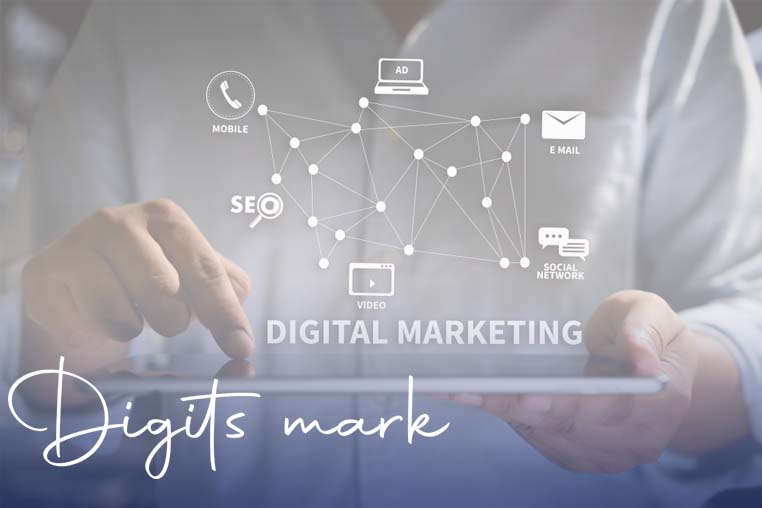Introduction
Have you ever heard the phrase, “content is king”?
Though content marketing used to just be a way to set yourself apart from your competitors, it has now become a necessity for any modern brand.
Content marketing is at the heart of most successful digital marketing campaigns.
Behind every great brand is a wealth of valuable and relevant content that really connects with the company’s audience.
But you may still be wondering, why is content marketing important?
To help you better understand the importance of content marketing, we’ve put together a list of the top advantages that it can provide your small business
Content table
- What does Digital Content mean?
- What type of content is most popular?
- Why do you need a content marketing strategy?
- 10 Reasons Why Content Marketing Is Important
What does Digital Content mean?
Consumers consistently look to online sources as a way to learn more about brands and products that interest them. But where audiences connect varies: email, social media, websites, blogs, and other digital channels can reach your brand’s ideal customers at different stages of their buyer’s journey. Digital content involves creating a strategy over multiple platforms that connects the audience to relevant content, where hopefully you’ll generate whatever it is your brand wants—typically increased sales. Perhaps it’s a tweet that leads a consumer to a podcast, or a blog post that drives traffic to a lead generation whitepaper, whatever—as long as you’re engaging your audience.
SEO, Sponsored Content, Social Media Marketing, Email Marketing—Digital Content runs the gamut of ways to connect with consumers. Content marketers know how their work connects with the other players.
As an example, look at the particular device a consumer uses and how that dictates how they interact.
Consumers increasingly rely on their smartphones to connect online socially and as consumers. Short-form content like social media, pop-notifications, and email campaigns are prevalent and work well in the mobile medium. But these could be a gateway to more developed, longform content they might access when they’re not on the move.
A website links to a blog that leads to a whitepaper that leads to a sale. Here is where a content marketing definition is clear, and it finds its place Digital Marketing—transitioning from quick, non-committal connection with your audience to a deeper understanding of your message.
What type of content is most popular?
Effective content marketing connects audiences with valuable information. And that’s why blogs still dominate the field when it comes to online content—and for good reason. It’s tough to catch the attention of a fickle online community, but blogs operate as the perfect balance between subject-matter-expert information and brevity. But to get a significant readership, it takes more than 600-words every week on your brand.
Can your blog be backlinked from other blogs in a series? Does your blog link to other relevant posts or to a possible whitepaper or eBook? Based on analytics and how successful the readership is for a particular blog campaign, it might garner an additional website that leads to additional content.
It’s hard to define content marketing and what content is most popular—digital marketing relies on more than what’s viewed most, or by how many consumers visit a site. Audiences want to find value wherever your brand is present, so you need to provide a tangible storyline for them to navigate as they learn more about your brand.
Why do you need a content marketing strategy?
Content marketing leads consumers to more informative, engaging mediums—if done right. By having a content marketing strategy, you direct the consumer’s attention to more and more pieces of content, further establishing your brand but also giving you a chance to know your audience more.
Content development doesn’t happen overnight. It takes multiple campaigns, trial and error—but at the end of each campaign, you should have a better idea of what your audience values. Use content analytic tools to see how long a reader spends on a certain blog or webpage before moving to the next. Measure how successful a link has been to connect a reader to another blog or whitepaper.
You need a content marketing strategy to be able to plan, execute, and measure your content’s success. DemandJump offers a unique set of tools so you have one space where you can organize and develop, measure, and analyze content and how it works with your greater digital marketing goals. As you continue to explore the potential of content marketing as a core part of your brand’s digital marketing strategy, sign up for a free trial of DemandJump to see just how much you can learn about your audiences and what they want.
10 Reasons Why Content Marketing Is Important
- Improve brand reputation
- Helps influence conversions
- Helps improve your SEO efforts
- A cost-effective way to bring in new leads
- Showcase your subject matter expertise
- Build relationships with customers
- Your leads and customers want great content
- Set yourself apart from competitors
- Important during each step of the marketing funnel
- Support nearly every other digital marketing strategy
1. Improve brand reputation by building trust through content marketing.
One of the greatest benefits that really shows the importance of content marketing is the reputation-building qualities of great content.
In today’s busy digital marketplace, it’s vital that businesses work to build trust with their leads and customers.
Building trust can help your business establish a positive brand reputation.
Great content can help you build trust with your leads and customers.
When consumers read your content, they start to develop an opinion of your brand.
If the content that they find is engaging, educational, and valuable, then they will start to think the same things about your business.
The more value you can provide with your content, the easier it will be to build trust with your target audience.
In addition, when your leads and customers start to see that you are consistently publishing content across platforms…
…they may come to see you as a leader in the industry.
Publishing content through third-party publications or sharing your content with influencers can also help you further build trust within your target market.
2. Great content helps influence conversions.
If you’re really wondering why is content marketing important, then look no further than the conversion statistics.
Here are just a few of the stats that really speak to the importance of content marketing when it comes to improving website conversions:
- Content marketing provides conversion rates about 6 times higher than other digital marketing methods. (ABG Essentials)
- After reading recommendations on a blog, 61% of online consumers in the U.S. then decided to make a purchase. (Content Marketing Institute)
- According to 74% of companies surveyed, content marketing has increased their marketing leads, both in quantity and quality. (Curata)
- Video content can help provide a great ROI and significantly increase conversions, according to 72% of businesses surveyed. (CrazyEgg)
- Inbound marketers are able to double the average site conversion rate (from 6 to 12%), in part due to their content marketing efforts. (HubSpot)
Content marketing helps to improve conversions because it allows you to connect with and educate your leads and customers.
Not only are you working to build trust and relationships, but you are also encouraged conversions.
By giving consumers the information they need to make an educated purchasing decision.
To optimize your content for conversions, be sure to include a clear call-to-action.
Your CTA tells the reader what they need to do next, guiding them to the next step in the conversion process.
Whether converting means…
- making a purchase,
- getting more information, or
- contacting your sales team,
…it’s important to make it clear to the reader within the content what you want them to do next.
3. Optimized content helps improve your SEO efforts.
The importance of content marketing becomes more clear when we look at how it helps your business build and improve search engine optimization (SEO).
SEO plays an important part in improving visibility for your business online.
However, if you want to improve SEO, you need to create optimized content.
According to Tech Client, content creation is the most effective SEO technique.
In fact, business sites that post consistent blog content have on average of 434% more pages indexed by search engines than those that don’t publish at all.
The more content you have on your site, the more pages the search engine has to index and show to users in their search engine results.
Though more pages do not necessarily result in higher traffic, it does give your brand the opportunity to rank for more keywords.
For instance, creating blogs on different relevant topics gives you more chances to rank for the keywords that they are searching for.
Not to mention, the more content you have on your site, the more reasons you give visitors to stick around.
This means a higher on-site time, which can also positively impact your search engine optimization.
Google sees time spent on site as one indicator that your site provides valuable content.
Want to consistently provide valuable content to your website visitors? You should!
Consider our blog writing services as an option to boost your content marketing game.
4. Creating great content is a cost-effective way to bring in new leads.
For those wondering why is content marketing important, take a look at all of the ways that content can help your business bring in new leads.
Lead generation is important for small businesses that rely on consistent traffic to grow their brand and boost sales.
Content marketing is not only great for lead generation, but it’s also affordable.
Though content marketing costs about 62% less than traditional marketing tactics, it generates about 3 times as many leads, according to DemandMetric.
The affordability of content marketing makes it a necessary tactic for small businesses that want to maximize their budget.
It’s important to note that content marketing is time-intensive, and it can also take a while to see the results of your efforts.
This is especially true when it comes to SEO.
However, when it comes to creating quality content, a little can go a long way.
In fact, according to Social Media Examiner:
…more than 81% of marketers found that they experienced increased traffic by investing as little as 6 hours per week in their social media content.
Not only is content marketing an affordable tactic, but it also provides an ROI that small businesses just can’t ignore.
The importance of content marketing is easy to see when you consider the return on investment.
Since creating content is fairly affordable and highly effective, many small businesses will see an impressive ROI on their content marketing over time.
In fact, per dollar spent, content marketing efforts produce 3 times as many leads as paid search ads.
The key to maximizing content ROI is creating a digital content strategy that takes your target market into consideration.
You should never just create content for the sake of creating content.
If you want to get your money’s worth, your content should be strategic:
- in the topics you choose,
- the types of assets you produce, and
- your promotional methods
5. Content enables your brand to showcase your subject matter expertise.
Consumers want to know that they are dealing with experts who know the ins and outs of the industry.
This is another answer to why is content marketing important.
Content marketing allows your brand to demonstrate its expertise in the field.
While providing valuable knowledge that can help readers make a more educated purchasing decision.
Every time that you publish:
- a new blog post,
- white paper, or
- other pieces of content
…you’re showing leads and customers how much you know about the industry and the challenges that they face.
When it comes time to make a purchase, consumers will remember the brand that provided them with the information they needed.
Let’s say it comes down to purchasing from a business that publishes consistent content that’s educational and informative or one that doesn’t have any content.
The consumer is more likely to purchase from a business that has demonstrated their knowledge and expertise.
That way, they can have peace of mind.
Because they know that they are being taken care of by industry experts who can answer their questions and easily troubleshoot any issues.
6. Want to build relationships with customers? Publish great content.
If you’re still wondering, why is content marketing important?
Consider how great content marketing can help you build relationships with your customers.
Previously, we discussed how content is an integral part of building trust and establishing a positive brand reputation.
This can help you grow your audience and reach new leads.
But what about those who have already purchased from you? Repeat customers are the bread and butter of many small businesses.
In fact, according to BIA Kelsey, 61% of SMBs say that half of their revenue is coming from repeat customers.
Furthermore, Marketing Tech Blog reports that a loyal customer is worth, on average, up to 10x as much as their first purchase.
It’s clear that loyal customers are nothing but an advantage to your business.
If repeat sales make up a significant portion of your company’s revenue…
…then you’ll need to find ways to strengthen your relationships with current customers.
This is where content marketing comes in.
Providing great content doesn’t stop after a lead becomes a customer.
Content that provides value for your customer base will help increase brand loyalty by strengthening the relationships you have with customers.
This can encourage repeat sales and help you establish powerful brand advocates.
As you can see above, not only do customers feel more positive about a company with custom content, but they also feel closer to that brand.
So what type of content is best for building brand relationships?
Assets like how-to videos and other types of informative visual content can help your customers get more out of your products or services.
The more value they get, the more likely they will be to return.
Brand guides and comparisons are other great examples of content that can help provide more value for your customers.
By helping customers make smarter purchasing decisions, you are working to build further trust and encourage repeat sales.
7. Your leads and customers want great content!
Why is content marketing important?
Well, your leads and customers want to read great content. In fact, 20% of the time that internet users spend online is spent just reading content.
And if you’re thinking that people don’t want to spend time reading content from brands, think again.
As the infographic below shows, 68% of people like to spend time reading about the brands they find interesting.
Additionally, 80% of internet users like to learn about companies through the custom content they provide.
These statistics show that not only do consumers like content, but they want to read great content from brands like yours!
So why not give the people what they want?
If you want your content marketing to be effective, then don’t ignore the data that you’ve collected from your audience.
Gather data for your customer insight from journey maps, user feedback, vanity metrics, and customer persona.
This information is vital for your content planning.
Create custom content that speaks to your target audience and provides some type of value.
Whether it’s entertaining or educational, use your content as an opportunity to show consumers what your brand is all about.
The key to creating an effective content that helps you connect with your eager audience is focusing on topics that are relevant to their:
- needs,
- interests, and
- challenges
And don’t forget to show a little bit of personality to help consumers get to know your brand and what sets you apart from the rest.
Which brings us to the next answer to the question, why is content marketing important…
8. Content marketing helps you set yourself apart from competitors.
In the busy digital marketplace, it’s vital that your small business differentiates itself from competitors.
This is the importance of content marketing.
Content marketing is an effective way that small businesses can work to set themselves apart from others in the industry.
And also, to show what makes their company special!
The topics and value of the content you create content can mean the difference between a consumer choosing your brand over a competitor’s.
For instance, if a buyer is doing research about their challenges and certain products that can help solve those challenges…
…they will be more inclined to work with the business that’s provided them with helpful information.
If this isn’t enough to show you why is content marketing important, consider the role that content plays in helping you develop a brand personality and voice.
Beyond just the type of content that you produce, you can also set yourself apart from the competition.
And that is through your content’s language and the way that you present your information.
Is your brand personality serious and professional? Fun and educational?
Maybe a mix of both?
Determining how you want to portray your brand and developing a brand voice can help you create content that is unique to your business.
This brand personality can help you connect with your target buyers and show them what makes your business special.
One of the best ways to show this personality is through the marketing content that you create.
9. Content is important during each step of the marketing funnel.
Now let’s think about the importance of content marketing when it comes to your marketing funnel.
There are three major areas of your marketing funnel that you need to think about while you’re developing your digital marketing campaigns.
And content marketing plays a role during each stage of the funnel.
Here’s where content marketing comes in throughout the marketing funnel:
-
Top-of-Funnel (TOFU):
At the top of the funnel, your prospective customers are just starting to become aware of their problems.
They are also starting to become aware that there are solutions available.
During this stage, content can help educate them and get them the information they need to decide which type of solution might help.
-
Middle-of-Funnel (MOFU):
At the middle of the funnel, leads are evaluating their options for products or solutions.
Content during this stage of the funnel is meant to educate leads on what their different options are.
This will allow them to start narrowing their choices and come closer to a final purchasing decision.
-
Bottom-of-Funnel (BOFU):
Once leads reach the bottom of the funnel, this means that they are ready to convert.
Content during this stage is meant to give a final nudge of encouragement to the buyer and empower them to make an informed purchasing decision.
To get a better understanding of content in each stage of the funnel, take a look at this graphic:
Here you can see how content marketing plays a role through every stage of the marketing funnel as well as which types of content work best to top, middle, and bottom-of-funnel leads.
When creating content marketing to reach potential customers at each stage, be aware of what each lead needs at this point in their buyer’s journey.
Prospects at the top of the funnel need more general information that helps them better understand their challenges and potential solutions.
Leads who reach the middle of the funnel need more detailed information that encourages them to evaluate their options.
While leads at the bottom of the funnel need content with specific details about your unique offer to help them make an educated purchasing decision.
10. Content helps support nearly every other digital marketing strategy.
Yet another importance of content marketing is that consistent, quality content helps support every other part of your digital marketing strategy.
Most small businesses have more than one tool in their digital marketing toolbox.
From email marketing to social media to PPC ads, there are many different tactics that you can use to attract and engage your ideal audience.
Do you want to know what all of these strategies have in common?
Great content!
Your business needs to create engaging, high-quality content as part of any tactic that you employ in your digital marketing campaigns.
For example, let’s say that you want to launch an email marketing campaign for lead nurturing.
You have to develop email content that is engaging and encourages readers to take the next step.
You can also use pieces of content that you’ve already created to help nurture those leads.
These pieces of content include a blog or whitepaper that gives them the information they need to move them through the funnel.
There should no longer be a question of why is content marketing important because it integrates into all other areas of your digital marketing strategy.
Conclusion
With all the benefits of content marketing, it’s easy to see why is content marketing important for businesses of all sizes.
Not only does content marketing help you boost visibility, but it can also help you build stronger relationships with your leads and customers.
If you really want to see the importance of content marketing in action, it’s time to get started.
Work on developing a content marketing strategy that has your target buyers at its core.
Then, you can be on your way to creating valuable content that helps boost conversions and improve customer retention.
Learn more about how partnering with a content marketing agency like digitsmark. Marketing can help you drive more traffic and conversions.
Be sure to check out our content marketing services page for more information.
Heard enough and ready to get started? Contact us to discuss your content marketing plan.
































